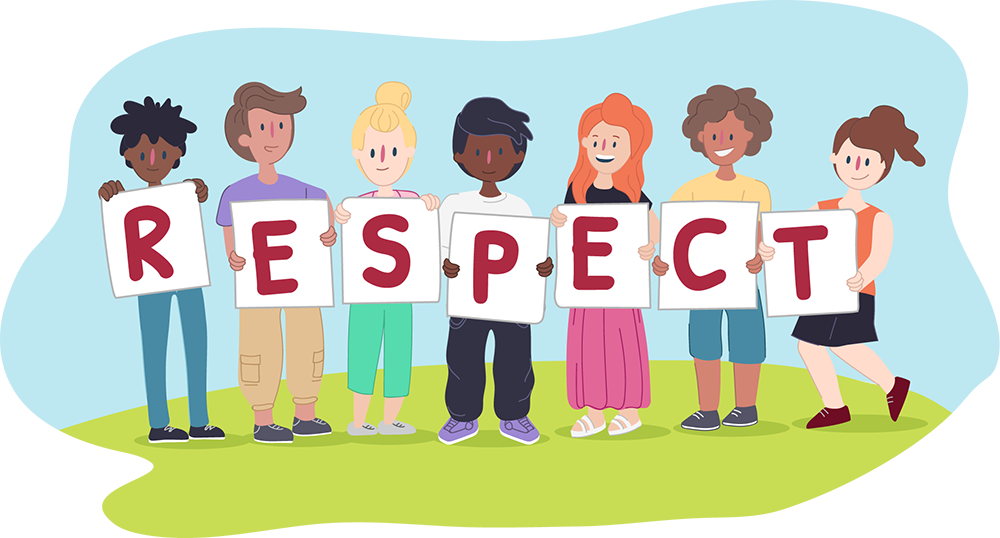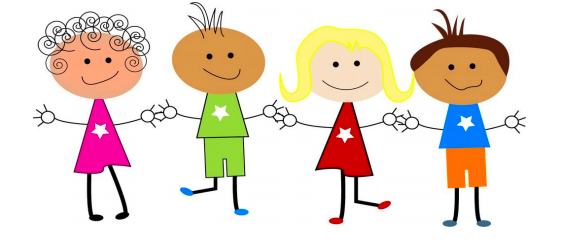Wellbeing MATTERS!

Wellbeing MATTERS!
Dear Families,
At Sacred Heart RESPECT is at the core of what we expect and desire from our staff, students and wider school community. Respect for ourselves; each other; families; the school staff; neighbours; the school itself and all its equipment. It can be a difficult “thing” to teach children. We can’t make them respect us, themselves or the things around them. It goes deeper than just being compliant and saying “yes Sir” or “no Sir”. The feeling of respect needs to come from within and we cannot force someone to respect us. And we cannot teach respect by being disrespectful to children.
How Do We Teach Respect?
Here are some things we can do to help children to listen to and respect parents, teachers, themselves and others.
1. STAY CALM AND DON’T OVERREACT WHEN YOU “THINK” YOUR CHILD IS BEING DISRESPECTFUL.
If someone doesn’t meet your expectations, it’s not ok to yell, this is YOU being rude. This shows our frustration and that you are actually the one being rude and disrespectful. This is definitely the wrong message for our children. By yelling, it was not being a good role model in having empathy, respect, and self-control.
To teach respect, first, we need to stay calm and stay in control.
Identify if the behaviour the child is expressing is a real “disrespect” situation, a misunderstanding or simply because the child hasn’t learned the proper response in such a situation.
2. IDENTIFY THE CAUSE FOR DISRESPECT AND FOCUS ON TEACHING PROBLEM-SOLVING ALTERNATIVES
When genuinely being disrespected, we should pay attention to the circumstance instead of going off on the child, “You are being disrespectful!” Ask your child why they act that way?
Children that are being disrespectful are usually because they are angry. Someone has hurt them. So, out of instinct, they want to hurt you back. It is usually not malicious because children (and grownups) cannot think straight when they are angry. They just reflexively want to fight back to protect themselves and sometimes they use hurtful words to do so.
Now it is time to address the child’s needs. They were angry because her needs were not met. Help them to think of other ways to get what they need instead of yelling. Explain that hurting others that way couldn’t help reduce her anger or solve her problem. By naming and talking about the child’s emotions, it helps them to understand where the anger came from, and it taught some vocabularies to describe the emotions and gave tools to solve problems. It also shows that in conflict situations, you could still stay calm, keep a clear head and respond respectfully.
Disagreement can take place without being disrespectful.
3. MODEL HOW TO BE RESPECTFUL BY RESPECTING CHILDREN FIRST
What better way to teach a behavior than modeling the behavior you want to teach? Show them how to respect by respecting them. Just treat the child as a person in the same way you treat other grownups.
For example, respect their preferences.
If a child wants to eat the inside of a pie first before the crust - I like to take the lid off, eat it and then eat the rest of the pie - then why not? We don’t need to have complete control over a child’s behaviour and preferences. If we want a child to respect us, we can start with respecting their choices.
Children have their own likings. If we don’t like what they want, I will explain my rationale. But ultimately, they have to learn to make decisions for themselves. As long as their choice is not a danger to safety or health, is not (too) financially consuming and does not hurt others, we should honor it. Every person has the right to think independently and like different things. That should include children.
When children’s differences are accepted, they feel heard and respected. They see first-hand how to treat others who have different opinions. They learn that they should respect people despite their differences. This understanding and tolerance for differences will become especially important when the teenage years come.
There’s more to come, but why not continue this conversation at home with your children and family members. Maybe talk about what this feeling of respect is like in your household. Happy conversations!
Please feel free to contact me if you have any concerns or queries.
Debbie Turvey
Pastoral Wellbeing & Learning Diversity Leader
dturvey@shtatura.catholic.edu.au
(03) 5824 1841
Stay tuned in our school newsletter for more ideas and conversations around promoting wellbeing and learning in our school community.
Have a great week, make the choice, be your best!


